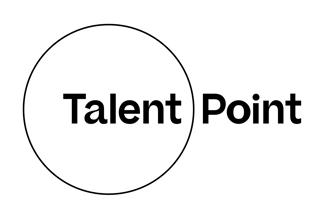International Women in Engineering Day falls on 23rd June 2021! This year, we are celebrating our Engineering Heroes!
As a part of take part in the festivities, we are privileged to get the insights of women from within the Engineering industry.
Charlotte Gee, Solutions Engineer at Optibus, shares what having a role in STEM means to her and her hopes for the future of Engineering.
 |
What has the last year 18 months been like from a personal and a professional standpoint?
In the last 18 months a lot has changed for me, as I'm sure it has for everyone. I started 2020 working for an American firm who implemented their own app on Salesforce. I then lost my job at the start of the Covid19 lockdown here in the UK. After several months of thinking about what I wanted to do in the future and applying for jobs, Optibus reached out to me and invited me to apply for a Solutions Engineer role in the UK, they thought I would be a good fit. So far I can't help but agree. I started working for the London office in September of 2020 and have loved being part of the team!
It was Mental Health Awareness Month in May and it is Pride Month in June, what is the significance of that to you personally and in your role?
As with many people Covid19 has highlighted the fractures with my mental health and driven me to examine my work/life balance and my support network. Any STEM role can be male dominated, and many still are. One of the things I am thankful for is that our team is balanced in terms of gender. This can help prevent the isolation of working in a predominantly male industry as it lessens that feeling of being the odd one out. When on calls with various scheduling teams, having the backup of the guys on the team makes a massive difference in terms of support and everyone goes out of their way to make sure the whole team is both advocated for and included.
What are the biggest challenges that you think the Engineering industry will face in the future?
Resources. Both people and the materials we use in production. Over the years we have found that some rare metals are the best for conducting electricity. Other machines require blends of metals with some even needing steel from before the 1940s. All of these requirements cause demand on rare resources and encourage the destruction of natural resources to obtain more of these materials. As an industry, a concept, a group of individuals, we need to consider how we make the most out of the materials we have, and what we will replace them with in the future.
That's where the resource challenge comes in, we need to be attracting people from every race, culture, gender and background to start opening up the think groups to new ideas and problem solving skills. That is where the biggest challenge will lie, overcoming the image that engineers are straight, white and male, which is the majority of images you will see if you google image search engineer. So many firms that fall under the umbrella of engineering have changed this, I know Optibus has, and is pushing to encourage diversity, including sharing diversity stats with the team. Now the hurdle is how to show the rest of the world the industry is changing for the better.
How do we inspire the next generation of women to choose careers in STEM?
I honestly believe it starts in schools. I was always very STEM focused in school, to the point I dropped humanities for GCSE, and my school always supported me in this. They had no boundaries on what subjects I had to do (unlike many schools nearby) and there were clubs not only for sports and music, but also Maths and IT. There were also a range of STEM, maths and IT events that my school signed up to and took students to (with the bonus of getting a day off school!). When you highlight to students, and especially girls, that being an engineer doesn't necessarily involve standing on a building site or being elbow deep inside a machine everything opens up. Until recently I never considered my job to be engineering (even though it's in the title!), but engineers are involved with machines as well. I engineer our software to make it fit the clients needs, but if you told me in school I would be an engineer I would have never believed you. Showing the breadth to engineering will attract talent that didn't even know they were interested in engineering, and all it takes is a little shift in thought.
If you enjoyed the interview above and you would like to find out more about how Talent Point can help to build up your teams from within, contact us today!

